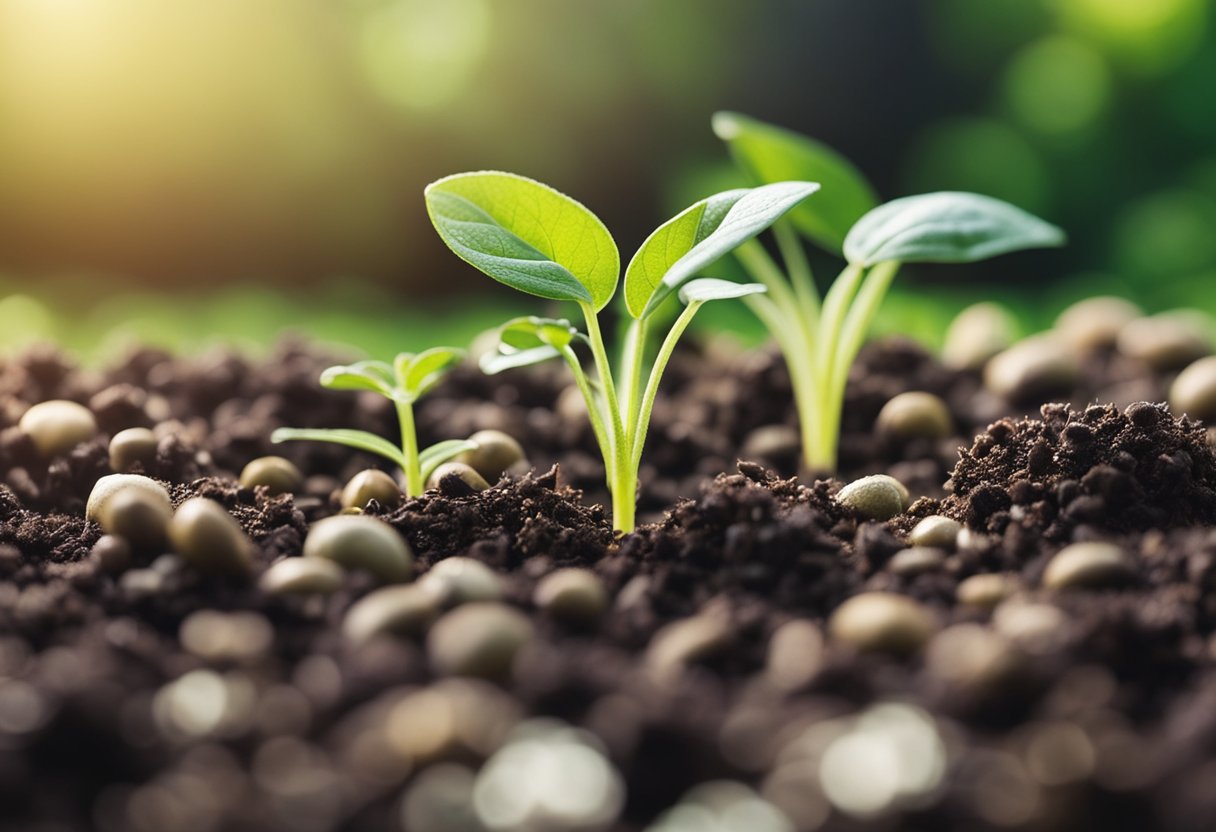As a gardening enthusiast in Canada, you may have noticed the increasing popularity of organic seeds. These seeds, which are grown without the use of synthetic fertilizers or pesticides, can offer significant benefits for both your garden and the environment. By choosing organic seeds, you’re supporting sustainable agriculture practices and promoting biodiversity in your local ecosystem.
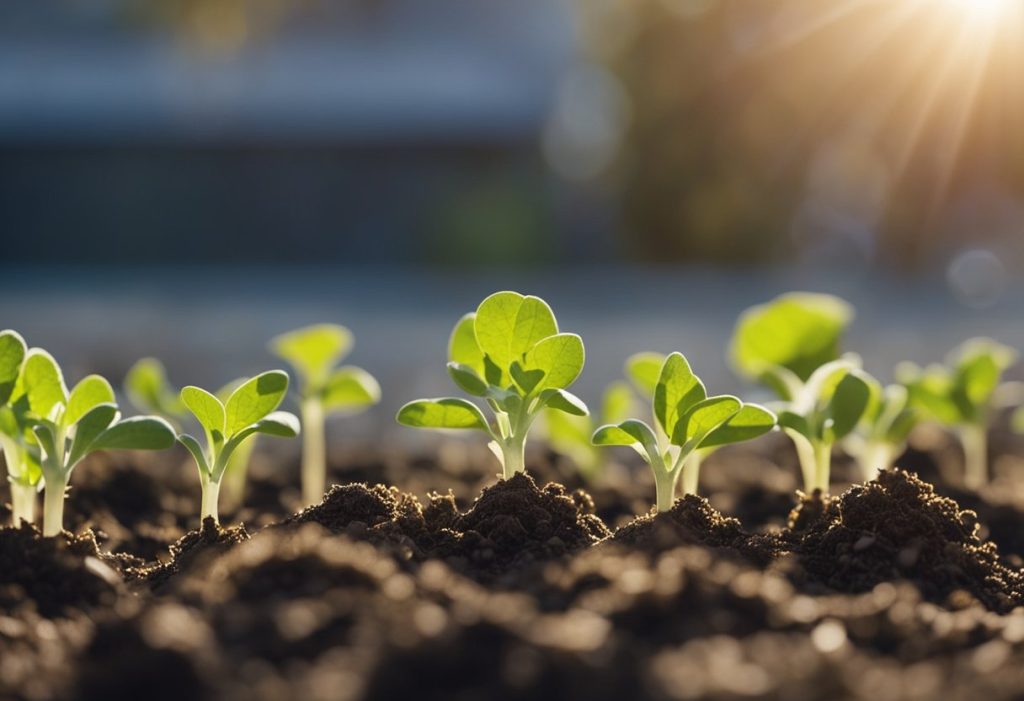
There are numerous organic seed varieties available in Canada, suitable for a wide range of gardening conditions and climates. With the growing interest in organic gardening, Canadian seed companies have expanded their offerings to include an extensive selection of these environmentally friendly seeds. From unique heirloom varieties to tried-and-true favorites, there’s an organic seed option for every gardener in Canada.
Key Takeaways
- Organic seeds provide eco-friendly options for Canadian gardeners
- A diverse selection of organic seed varieties caters to all types of gardeners and climates
- Supporting Canadian seed companies that offer organic options promotes sustainable agriculture and biodiversity
Organic Seed Varieties In Canada
As you embark on your organic gardening journey in Canada, it’s important to choose the right organic and non-GMO seeds. By selecting open-pollinated, heirloom, and certified organic varieties, you will enjoy a diverse, healthy, and flavourful harvest.
Start by exploring the wide range of organic seed varieties available at Northern Seeds. There, you’ll find certified organic, open-pollinated seeds for over 120 vegetable, herb, and flower varieties. As a Canadian gardener, you can confidently sow these seeds, knowing they have not been genetically engineered.
Another excellent source for organic seeds is the Canadian Organic Seed Company. Family-owned and operated, they specialize in breeding and growing seed varieties for vegetables, flowers, herbs, and rare edible perennials. Their focus on disease and pest resistance, as well as production, has won them several awards.
One more option worth considering is Kitchen Table Seed House, which offers organic and heirloom seeds adapted to Canadian conditions. Located on Wolfe Island near Kingston, Ontario, they provide certified organic vegetable, herb, and flower seeds focusing on varieties that are not only delicious but also make for enjoyable cooking experiences.
Remember, cultivating a successful organic garden takes time and effort, but with the right seed varieties and knowledge, you’ll reap the rewards of your hard work. Happy gardening!
Practices for Organic Seed Growing in Canada
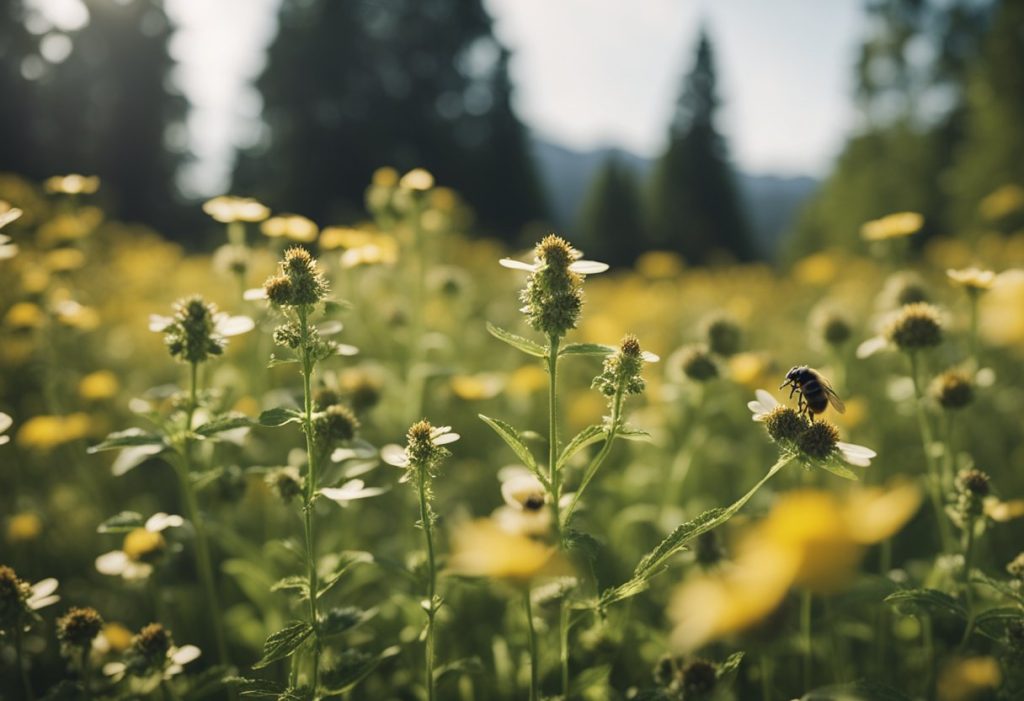
Organic seed growing in Canada focuses on sustainable and non-GMO cultivation practices that promote ecological balance and conserve biodiversity. In this section, we will discuss sustainable and non-GMO cultivation and the importance of certified organic labels in the Canadian seed industry.
Sustainable and Non-Gmo Cultivation
Organic seed growers in Canada prioritize sustainable farming methods that protect the environment, maintain soil health, and preserve resources. Some organic practices you can adopt as a farmer include:
- Crop rotation: This helps to maintain soil fertility and reduce pest problems.
- Cover crops: These plants prevent soil erosion, suppress weeds, and improve soil structure.
- Organic pest control: Beneficial insects, barriers, and natural repellents are used to manage pests while minimizing harm to the environment.
When growing organic seeds, it’s essential to choose non-GMO seed varieties. This ensures the plants you cultivate align with organic principles, which emphasize ecological systems and the avoidance of genetically modified organisms (GMOs).
Importance of Certified Organic Label
In Canada, achieving the certified organic label is crucial for seed producers and growers who wish to convey the high quality and purity of their seeds to their customers. This label verifies that the seeds have been produced under stringent organic standards and are non-GMO. To maintain this label, your seed production must adhere to the guidelines set forth by the Canadian Organic Standards.
When purchasing organic seeds, look for the certified organic label, so you know the seeds you’re planting in your garden come from true organic and non-GMO sources. This label guarantees that the seed producers have followed the best practices in organic growing, and you can trust the quality of the seeds you’re using in your garden.
Canadian Seed Companies and Online Stores
Choosing Your Go-To Organic Seed Company
When searching for the perfect organic seed company in Canada, it’s important to consider factors like the variety of seeds offered, seed quality, and the company’s commitment to organic practices. One notable option is Northern Seeds, which is focused on providing organic seeds specifically for the Canadian climate. Be sure to also sign up for company newsletters, as they often provide valuable information on new seed varieties, planting tips, and special offers.
Navigating through Online Stores for Seeds
As you browse through various online stores for organic seeds, it’s essential to pay attention to product descriptions and packaging details. Look for labels that specify the seeds are certified organic and open-pollinated. Open-pollinated seeds are especially important for preserving biodiversity since they produce plants with a higher genetic diversity.
While shopping, make use of filters and categories in online stores to directly find the types of seeds you’re looking for, whether it’s vegetables, flowers, or herbs. Keep an eye out for Canadian seed companies that clearly state their growing practices and offer a wide variety of plant seeds to suit your gardening needs.
Here’s a list of some Canadian organic seed companies to consider:
Remember, the key to a successful garden lies in choosing quality seeds from reliable companies that prioritize organic practices and eco-friendly solutions. Happy gardening!
Role Of Organic Seeds In Canadian Agriculture
Organic seeds play a significant role in Canadian agriculture. They form the basis for sustainable and eco-friendly farming practices. As a farmer, you are well aware of the importance of using seeds that are adapted to your specific farm conditions and climate. By choosing organic seeds, you are taking a positive step towards protecting the environment and promoting healthy crop production.
In Canada, organic agriculture has been practiced since the 1950s, with the number of organic farms growing rapidly since the 1990s. In 2017, the sale of organic products in the country reached a market value of C$5.4 billion [source]. Organic seeds are essential for farmers who follow these agricultural methods, as they offer a wide range of benefits.
When you decide to use organic seeds, you contribute to preserving genetic diversity in plants. Diverse crops are more resilient and can adapt to changing climate conditions and various farming practices. The Canadian government recognizes the significance of organic farming and has been supporting initiatives like the Canadian Agricultural Strategic Priorities Program (CASPP), a $50.3 million, five-year investment, focused on helping the agricultural sector remain competitive and adaptable [source].
An essential aspect of organic seeds is that they are grown without the use of synthetic pesticides, herbicides, or genetically modified organisms (GMOs). This ensures that you, as a farmer, are producing crops that are not only healthier for consumers but also better for the environment. With organic seeds, you can expect to see a reduction in soil erosion, improved water quality, and increased biodiversity on your farm.
Here are a few points to keep in mind while using organic seeds:
- Always source certified organic seeds from reputable suppliers.
- Adapt organic crop rotations and intercropping strategies to maintain soil fertility.
- Utilize organic pest management techniques and natural predators to keep pests and diseases in check.
Embracing organic seeds and farming practices in your Canadian agricultural endeavors will lead to healthier crops, a cleaner environment, and a thriving organic market. Remember, your choices as a farmer have a significant impact, and integrating organic seeds into your production can make a world of difference not only for you but also for future generations.
Gardening with Organic Seeds
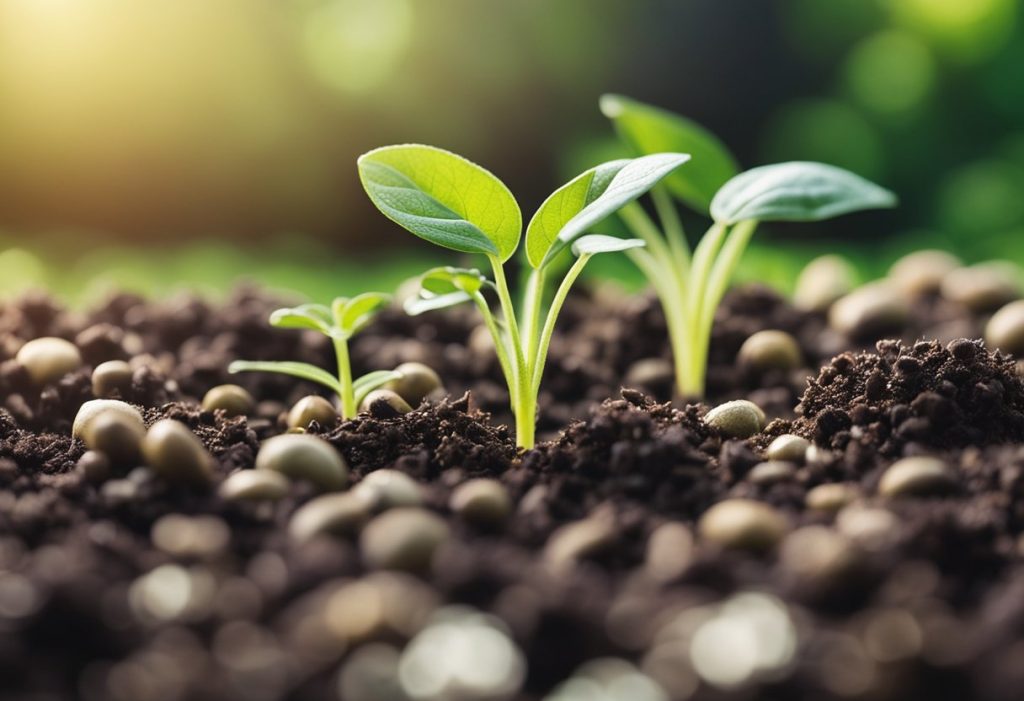
Growing Your Herb and Vegetable Garden
As a budding gardener, you have the power to grow a beautiful organic garden, full of herbs and vegetables right in your backyard. Start by choosing certified organic and open-pollinated seeds like those available at Northern Seeds or Hawthorn Farm. This ensures you’ll be planting non-GMO varieties that are better adapted to Canadian climates and help preserve heirloom varieties.
- Begin by selecting your favourite herbs and vegetables, whether it’s the humble tomato or a fragrant basil plant.
- Make sure your garden has nutrient-rich soil for your herb and vegetable seeds to thrive.
- Plant your seeds in either individual pots or directly into the ground, following seed packet instructions regarding spacing and timing.
- Water your plants regularly, ensuring they receive proper moisture and sunlight for optimal growth.
By using organic seeds, you’re not only contributing to a healthier environment, but also growing plants that can withstand pests and diseases naturally.
Caring for Perennial Flower Plants
Perennials are a gardener’s delight, as they provide beautiful flowers year after year. Canadian Organic Seed Company’s catalogue offers an assortment of perennial flowers that are perfect for any garden. To care for your perennial plants, follow these simple steps:
- Choose the right location: Different perennials have varying sun and shade requirements. Determine where your plant will grow best by checking its preferences on the seed packet or label.
- Prepare the soil: Organic matter, like compost or well-rotted manure, should be added to your garden soil before planting. This will help establish strong root systems for your perennial flowers.
- Planting: Dig a hole as deep and wide as the plant’s root ball, then gently place the plant into the hole. Fill in with soil and gently tamp down to remove air pockets.
- Watering: After planting, give your perennials a thorough drink. Continue to water them regularly, especially during their first season in your garden.
- Yearly maintenance: Cut back dead foliage in the fall, or early spring for certain species, to encourage new growth. Divide your perennial flowers every few years to keep them healthy and promote blooming.
By carefully tending to your perennial plants, you can enjoy a vibrant array of fragrant flowers that bring life and beauty to your garden year after year. So, roll up your sleeves and revel in the joys of organic gardening in true Martha Stewart fashion.
Heirloom vs Non-Heirloom Seeds
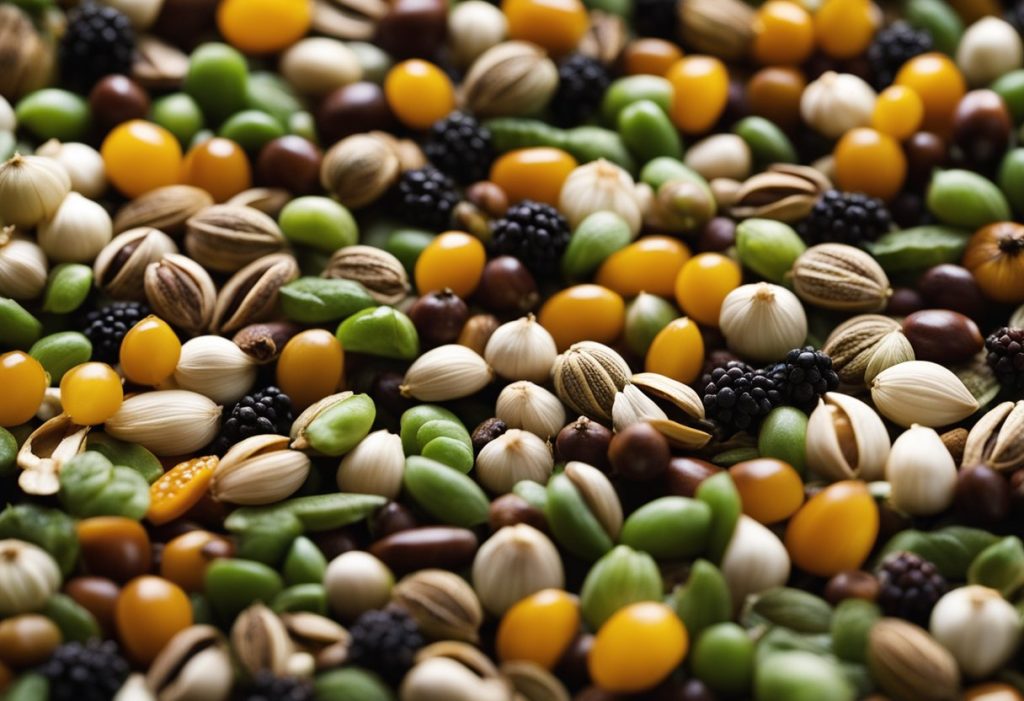
When choosing seeds for your garden, you might come across two main categories: heirloom and non-heirloom seeds. Understanding the differences between these types of seeds can help you make the best decision for your garden and your personal preferences.
Heirloom seeds represent a heritage of varieties that have been passed down through generations of gardeners. These seeds are open-pollinated, meaning they are pollinated by insects, birds, wind, or other natural means, resulting in plants that stay true to their parent plant’s characteristics. Heirloom seeds are also non-GMO, guaranteeing that they have not been genetically modified in any way. Many heirloom seeds carry unique flavour profiles, and you can save them year after year to grow in your garden.
Non-heirloom seeds encompass a wide range of seed types, including hybrid and GMO seeds. Hybrid seeds are created by crossing two different plant varieties to produce a plant that combines the best traits of its parents. While hybrid seeds can produce high-yielding, disease-resistant plants, the seeds collected from these plants will not produce offspring consistent with the parent plant.
GMO seeds are genetically modified to achieve specific, desired traits, such as resistance to pests or herbicides. These seeds are generally used in large-scale, commercial farming and might not be suitable for your home garden.
When selecting seeds for your garden, consider the following factors:
- Flavour and appearance: Heirloom seeds often have unique colours, shapes, and flavours that may be appealing for your culinary creations.
- Biodiversity: Choosing heirloom seeds supports genetic diversity, which is crucial for maintaining resilient food systems and healthy ecosystems in your backyard.
- Seed saving: If you want to save seeds for future planting, heirloom seeds are your best bet, as they will produce plants true to their parent plants.
In summary, if you value unique flavours, biodiversity, and the ability to save seeds year after year, heirloom varieties could be the perfect addition to your Canadian garden. On the other hand, if your main concern is achieving high yields or specific disease-resistance traits, non-heirloom seeds might better suit your needs. Consider your gardening goals and choose the seeds that align best with your values and preferences.
Frequently Asked Questions
Where can I find heirloom seeds in Alberta?
In Alberta, you can find heirloom seeds at local garden centres or through online Canadian seed suppliers, such as OSC Seeds. It’s important to research and choose heirloom varieties that are suitable for your region’s climate and soil conditions for the best gardening experience.
What are some popular Canadian garden seed suppliers?
Some popular Canadian garden seed suppliers include Canadian Organic Growers, Ontario Seed Company, and McKenzie Seeds. These companies offer a wide variety of seeds, including organic, heirloom, and hybrid options to cater to your gardening needs.
Are non-GMO seeds available in Canada?
Yes, non-GMO seeds are available in Canada through various seed suppliers. The Canadian Food Inspection Agency regulates seeds and seed potatoes in Canada, ensuring that GMO seeds are clearly identified. Make sure to check the product description for the non-GMO label when purchasing seeds.
Which Canadian seed company has the best reputation?
Reputation can be subjective, but Stokes Seeds is known for their quality products, range of seed varieties, and excellent customer service. It’s important to research various seed companies and read customer reviews to find the one that best suits your gardening needs and preferences.
What are the benefits of using organic seeds for gardening?
Using organic seeds in your garden has several benefits, such as promoting soil health, supporting biodiversity, and avoiding the use of synthetic chemicals. Organic seeds are produced without the use of harmful pesticides or fertilizers, resulting in a more sustainable gardening practice that can contribute to healthier plants and a better environment.
How do I choose the right seeds for my Canadian garden?
To choose the right seeds for your Canadian garden, consider factors such as your region’s climate, soil type, and sunlight exposure. Research recommended plant varieties for your area and consult local gardening groups or experts to gain insights about the best seeds for your specific needs. Opt for reputable seed suppliers that provide clear information about their seeds’ origin, characteristics, and cultivation requirements to ensure a successful gardening experience.
